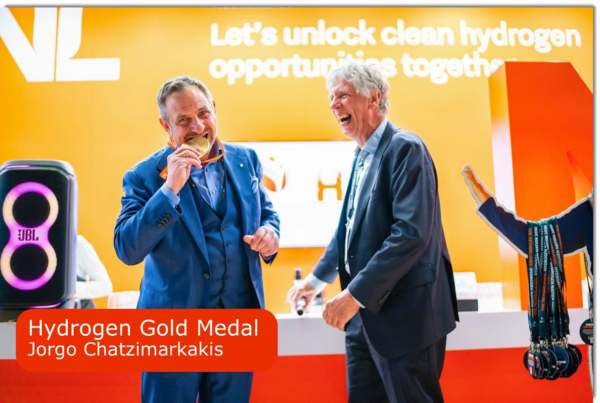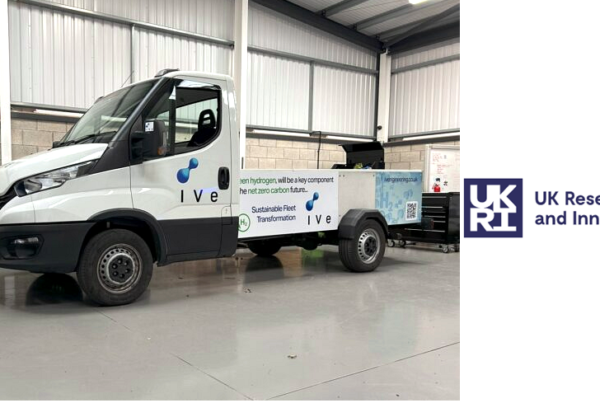
- The fuel cell as the core of hydrogen-based mobility is currently still too expensive to produce as an alternative to classic electric mobility.
A research project headed by Professor Rainer Müller wants to change this. In association with other partners from science and industry, he is looking for ways to make the production of fuel cells significantly cheaper. For this, the research network will receive 7.4 million euros for the next 3 years.
Hydrogen as a climate-friendly energy source for future mobility, especially “green” hydrogen, which is produced using electricity from renewable energies, promises great potential. However, the production costs for the necessary components in automobiles, trucks or buses are still far too high. A promising approach to reducing the cost of hydrogen-based mobility is to mass-produce the components of the fuel cells, in which the hydrogen is converted into electricity. It is therefore possible to mass produce the fuel cell stacks in order to drastically reduce unit costs.
However, this approach is currently failing due to a chicken-and-egg problem: “The current, still very low demand for fuel cells leads to low utilization of the partially or fully automated production systems. On the other hand, this increases the amortization times considerably,” explains Professor Rainer Müller, holder of the chair for assembly systems at Saarland University and head of the research area of the same name at the Center for Mechatronics and Automation Technology ZeMA. So there is currently too little demand for fuel cell vehicles, which makes them very expensive. This in turn makes it economically uninteresting to produce them in large numbers, which in turn means that their use is uneconomical, since the small numbers cause high production costs – and so on. In addition, the expected advances in fuel cells and their stacks will make it more difficult to build production facilities. If changed construction methods or other materials come into play, existing production systems are often not that easy to convert to the new requirements. A production plant that is still ultra-modern today can therefore already be outdated tomorrow and will then no longer have a chance to produce fuel cells economically on the world market.
It is therefore necessary to develop production systems that meet both the increasing demand for fuel cells and the changing requirements. But how can that succeed? This is what Professor Müller and his team want to investigate in the H2SkaProMo research project that has now started and is being funded by the Federal Ministry of Economics and Climate Protection (BMWi) with around 7.4 million euros. “The aim of the research project is to economically map the production of fuel cell stacks with industry-related processes and scalable production systems,” explains Rainer Müller the basic principle. “We plan to prototype three different approaches to production lines: fully manual, semi-automated and fully automated. In this way, manual assembly processes can be used to achieve a high level of product variability while at the same time being highly flexible and scalable, which is particularly useful in the production of small series and prototypes. The increasing and also fluctuating demand is served with partially automated assembly processes, the output quantity can be increased with a still high product variety. Finally, fully automated assembly processes enable series production under the highest quality standards with high output quantities. the output quantity can be increased if the product variety is still high. Finally, fully automated assembly processes enable series production under the highest quality standards with high output quantities. the output quantity can be increased if the product variety is still high. Finally, fully automated assembly processes enable series production under the highest quality standards with high output quantities.
“In general, we work with a holistic approach that not only focuses on the resources during development, but also takes into account the mutual relationship between product, process and resources and also addresses a product design that is suitable for assembly and disassembly,” explains Rainer Müller. The individual stations of the three production lines will be compatible and scalable with one another via interfaces, i.e. they will be adaptable to any size of production. Artificial intelligence is intended to help evaluate the data obtained in order to achieve assembly that is as defect-free as possible.
In addition, a human-centered approach is pursued in the project. With both cognitive and physical assistance systems, employees are optimally supported and guided in the assembly processes. This is due in particular to the complexity of the assembly processes, the increasing shortage of skilled workers and demographic change.
In addition to the technological innovations, the benefit of the research project can also be illustrated by its positive contribution to reducing CO 2 emissions. “Along the life cycle of a fuel cell, 85 percent of the CO 2 emissions are generated during manufacture and disposal. The CO 2-Ensure emissions by avoiding, for example, compressed air during complex handling processes and the significant reduction in the reject rate through comprehensive quality monitoring and product design for repairing the stacks that is suitable for dismantling,” explains Professor Müller. “In addition, the different levels of automation and the modular structure of the production systems allow the assembly lines to be reused beyond product and system life cycles, thereby guaranteeing a high level of sustainability.”
All these tasks require a high level of experience in research and industry. Therefore, 15 partners from the two areas have come together in the H2SkaProMo project. On the research side, these are Fraunhofer IZFP, Saarland University/ZeMA and the Birkenfeld Environmental Campus. Direct industrial partners are Schaeffler, HYDAC, XENON, URT Ratio Technik, INNOCISE, Susi&James and Munzinger Maschinenbau. The associated partners (autoregion eV, IHK Saarland, ME Saar, Mittelstand 4.0-Kompetenzzentrum Saarbrücken and saaris) support the transfer of results into their extensive corporate network.
Read the most up to date Fuel Cell and Hydrogen Industry news at FuelCellsWorks




